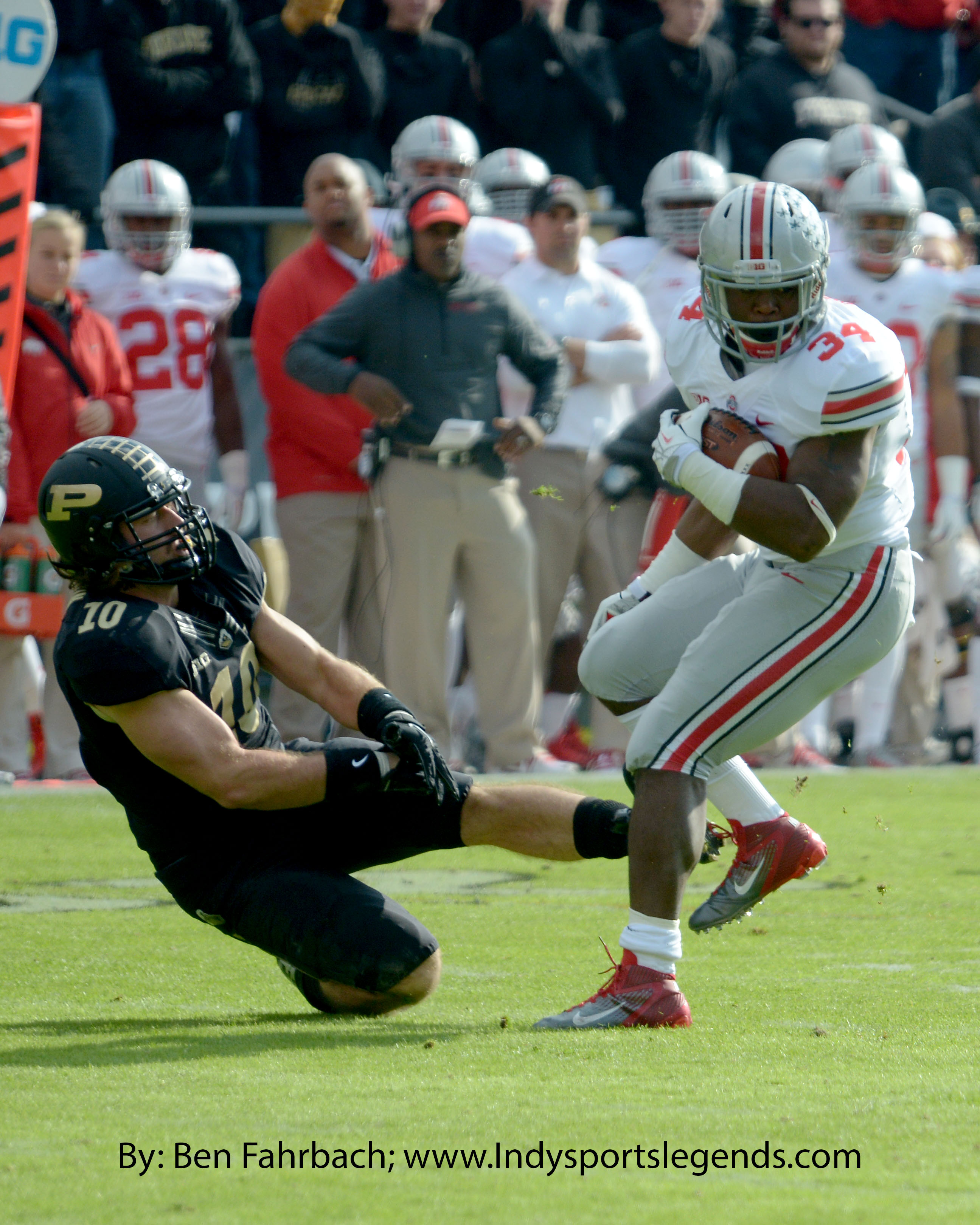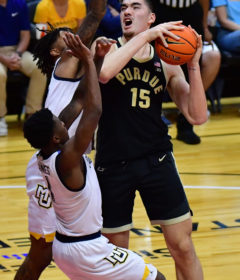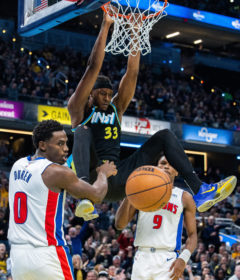Calinger: Unions, pay for college athletes in major sports good idea

By J.W. CALINGER
ISL Correspondent
Most of the negative opinions I’ve heard, regarding the recent ruling giving Northwestern football players the lawful right to form a union, are based on envy, and I can understand why.

With all the publicity and social status college football players have, and with all the scandals involving players who cheat or commit crimes with relative impunity, it’s a bit hard for those of us without the status or those of us who feel they worked harder for less compensation, to identify with players who, admittedly, often find themselves treated very well. This feeling of outrage is so strong, at times, that pundits and fans, even those who usually are fans of organized labor, argue against college football players forming unions; one friend of mine, an attorney by trade, was against a union on grounds that college athletes are “spoiled brats.”
The trouble is that envy is a lousy foundation for a policy. Not only does it lead a person to ignore the rights of other human beings, and not only does it lead one to stereotype others and falsely believe that their lives are perfect – this is Planet Earth; no one’s life is perfect – but to negate the rights of one person or aggregate of persons opens the door to negate the rights of others. Believing that some people don’t have the right to bargain for a better situation, just because they have one person’s idea of “enough,” inevitably leads to others being treated the same way. In some cases, the opponents themselves eventually may have people telling them they have enough, and that they shouldn’t ask for more.
Much of the antipathy toward students making more money or having better working conditions probably comes from the fact that it’s traditional for universities and corporations to extract free labor from students. A professional architect, journalist, physician, attorney, or teacher receives pay for services, but a student not only goes without pay but, often enough, has to pay the university to do the work, even if services may benefit the institutions financially. Many opponents argue against athletes being compensated on those grounds, instead of asking whether the professionals I mentioned above also deserve to be compensated.
Another part of the problem is that athletic scholarships, at least in football and men’s basketball, are a different animal from other scholarships. In most cases, scholarships are primarily for the benefit of the student, an investment for the purpose of giving a boost to young men and women who need one, and who will use an education to benefit people around them and, one hopes, pay more taxes and donate money back to their alma maters.
Athletic scholarships, on the other hand, are primarily for the benefit of the universities. Universities want what I call “the Three T’s” – Tickets, T-shirts, and television. They give players scholarships in order to fill seats at the stadiums, sell merchandise, and win television contracts for their conferences, with some of the money coming back to them. I would have included donations from boosters, but that doesn’t start with a T.
For most major colleges, football is extremely lucrative. A recent New York Times article noted that Texas A&M spent about $120,000 on tuition, room, and board for quarterback Johnny Manziel, aka “Johnny Football,” and during his career there, annual donations to the school rose by $300 million. When a university has a good college football team, the school makes money, the TV networks make money, athletic apparel companies, and sporting-goods stores make money, the coaches make money, and talking heads on sports networks make money.
Meanwhile, the NCAA conveniently puts caps not only on what schools can pay athletes, but severely restricts how athletes can make money on their own. The “laundry money” that schools used to give athletes each month is a thing of the past. Students also aren’t allowed to sell what’s legally theirs, like game tickets, jerseys, or awards, they’re not allowed to make endorsements and, in one ridiculous case, the NCAA told Colorado wide receiver Jeremy Bloom he couldn’t accept endorsements to help pay for his training expenses as an Olympic skier, even though those endorsements were from participation in a different sport altogether that had nothing to do with the NCAA or any university.
If this happened anywhere in the business sector – capping the amount of compensation a worker could receive, and forbidding them to make money on their own time – businesses would find themselves accused of forming trusts or cartels, and people would be clamoring for Congress to pass another law. Because these are college students, though, who have a high social profile, people are more outraged when the labor in this case wants to bargain for better working conditions and a bigger share of the money. When students are caught making money against the rules, pundits who, as I mentioned, make money from the popularity of college sports, often love to shake their heads and talk about what an awful, awful thing those athletes did.
It’s the fundamental right of an individual to pursue a greater reward for one’s time and effort – it’s part of the individual right to pursue and improve one’s life as one sees fit. Morally speaking, groups don’t have rights, but individuals have the right to form groups like unions and work together for their mutual benefit. This moral right is absolute, and how well off people are when they decide to start working together is completely and utterly irrelevant. As I noted in a comment elsewhere, a right is a right.
To be perfectly fair, I’m against plenty of the aspects of the college sports business. I’m against taxpayer-funded stadiums, and I’m against tuition money going toward the athletic department of any school. In fact, I’m not sure college sports should exist; they take the focus of universities from education to what amounts to a form of entertainment. I’d sooner see minor-league and club teams, as we see in other countries and some sports here in the US.
As long as college sports do exist, though, it’s important to honor the right of the folks who play the game to earn a little more of the billions of dollars their schools are taking in. It’s important to understand that the rules established by the powers-that-be aren’t for tradition, but for making sure the players are compensated as little as possible for working as hard as they possibly can.






